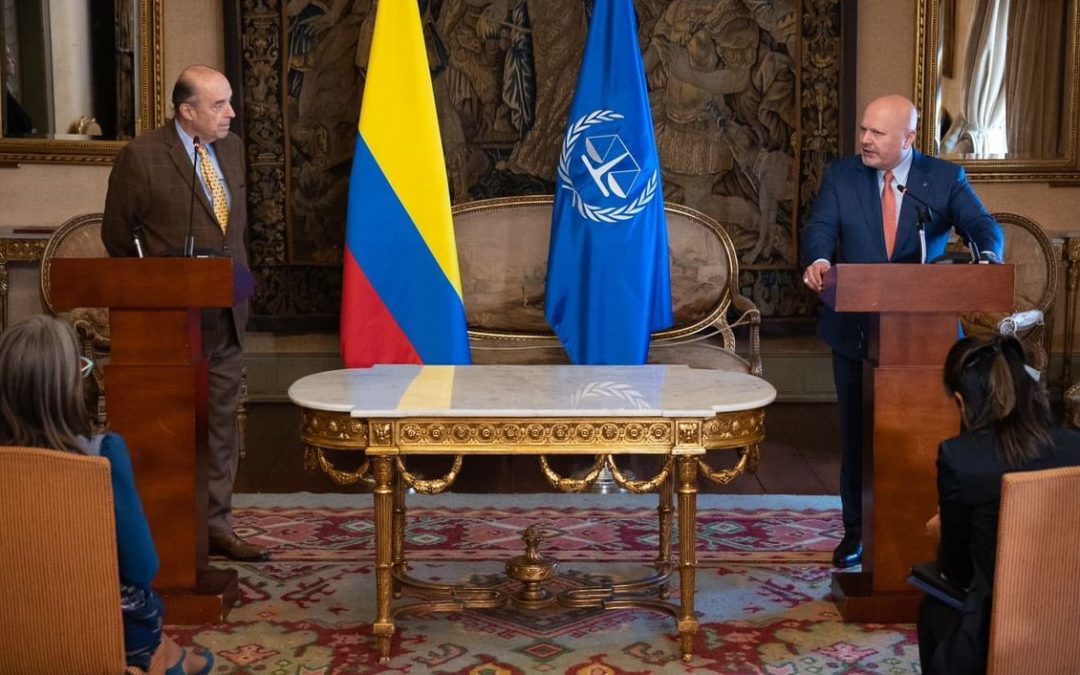Bogota, Paris, The Hague, 21 July 2023 – 22 July 2023 marks one year since the decision by the Court, which urged the ICC Prosecutor to explain, without delay, to those who provided him with information, of his decision to close the preliminary examination of the situation in Colombia and not open an investigation. The International Federation for Human Rights (FIDH) and the Colectivo de Abogados y Abogadas José Alvear Restrepo (CAJAR) recall the importance of transparency in the Prosecutor’s decision-making process, and of meaningful outreach with victims and civil society who submitted compelling information for over 15 years about international crimes committed in Colombia and the inadequate responses of the domestic justice system.
FIDH and CAJAR, representing Colombian victims of crimes against humanity, had requested the Pre-Trial Chamber of the ICC to revoke the Prosecutor’s decision and, consequently, to order the reopening of the preliminary examination for the situation in Colombia in the interests of victims and justice. In the alternative, they also requested that the Prosecutor be ordered to communicate to the victims and the international community the reasons for the closure, since the information available did not provide the reasons for his decision.
On 22 July 2022, ICC Pre-Trial Chamber I acknowledged that the OTP did not sufficiently inform victims and their representatives of the reasons for the closure of the preliminary examination of the situation in Colombia, despite the long duration of the examination and the expectations raised for those who provided information to the Office of the Prosecutor for over 15 years. Based on these considerations, the Pre-Trial Chamber ordered the ICC Prosecutor to promptly inform victims and organisations that represented them about the reasons of the closure, in accordance with Article 15(6) of the Rome Statute. After one year, the Office of the Prosecutor still has not complied with the order.
Despite brief statements on the occasion of the ICC Prosecutor’s few visits to Colombia focused on his cooperation with national authorities, the reasons why the Prosecutor closed the preliminary examination of the situation in Colombia remain unclear. This silence confirms the position of FIDH and CAJAR on the need to have maintained the preliminary examination open or to reopen it. In Colombia, while the Special Jurisdiction for Peace (JEP) has made some progress in the fight against impunity for those responsible for international crimes, results are insufficient to justify the closure of the preliminary examination, and do not hold accountable those who may have the greatest responsibility for the crimes committed and yet are excluded from the jurisdiction of the JEP. We consider that the work of the JEP should be valued when there is sufficient information that shows compliance with the rights of the victims within its jurisdiction.
In addition to the above, closing the preliminary examination has been problematic, as the armed conflict and socio-political violence persist in Colombia. As a result, international crimes continue to occur and are not adequately investigated and prosecuted at the domestic level. For example, the systematic murder of human rights defenders and signatories of the Peace Agreement, the recruitment of children, forced displacement and unlawful confinement persist.
Finally, FIDH and CAJAR consider that a full year without a response from the Prosecutor of the Court has been more than a reasonable time for the Prosecutor to comply with the order of Pre-Trial Chamber I of the ICC. An effective response is still awaited.

